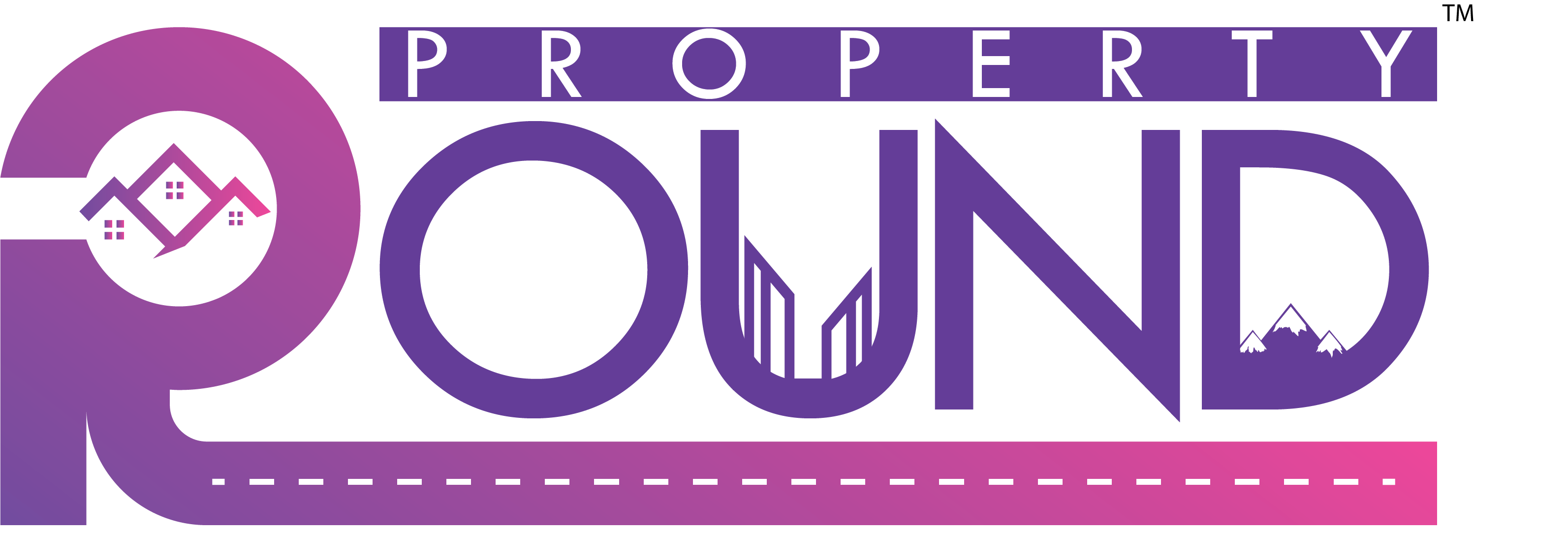From digital open houses to artificial intelligence platforms, bitcoin crypto currency, use of new technologies are taking over the real estate industry by storm and accelerating the pace of business. With tech-savvy Millennial, it is important to power up your career by staying on top of these swiftly evolving trends and learning how the use of technology can work for you.
Ambiguity is one of the certain phenomena that comes like chaos and takes everything with it. It is our loom and preparation which mitigates the risk and the repercussions of uncertainty. Restaurant, hospitality, travel, real estate, you name it and most businesses have been exaggerated by this dimness created by COVID -19.
Particularly, the impact on the real estate industry is exceptional. The Corona virus outbreak has not only derailed the global economy, but has also disrupted our habitual way of conducting business amidst the nationwide lockdown.
Everyone in this ecosystem either real estate builders to property managers, or real estate agents to investors, has been influenced in some way or another way. COVID 19 has forced them to ally their work according to the current picture where social distancing, work from home, and lockdown mandates are customary.
Over 70% of customers look for homes online and more than half of the house tours are booked through the website.
After the outbreak the real estate industry is going through a perceptible technological change. The way it was run and operated as a matter of the past it may not be the case today or in the future.
COVID 19 has forced the industry to take on new technology seriously. Let’s see what change you might see in the Real estate industry during the pandemic or even after the COVID 19. Industries are trying to survive by finding ways to serve their customers, sustain their employees and maintain cash flows.
A balance of empathy and adoption of new technology will definitely help them to stay viable in this marketing. Although these circumstances have enthused bafflement in the minds of individuals around the world, certain industries don’t necessarily have to come to a standstill in this time – including several components of the building industry, which may come as a surprise to many.
Trends in real estate technology revolution
- Artificial intelligence algorithms assistance:
Artificial Intelligence can be an intimidating and even threatening idea to some. Science fiction is conditioned to see us as something that will ultimately prevail human intelligence and bring about our demise. But today’s Artificial Intelligence solutions do not yet dream of electric sheep and are used to meet the growing need for convenience and efficiency.
Real estate Artificial Intelligence platforms can range from robots to immersive virtual tours offered from the comfort of their customer’s sofa. Beyond its consumer-centric approach, Artificial Intelligence can streamline processes for agents by automating repetitive tasks, such as answering questions in real time with chat bots, and using predictive analytics to sift through large amounts of data to target hot leads.
- Data analysis will play a major role:
As customer behavior will have a major role to play in the upcoming years, data analysis will play a vital role. More and more real estate businesses will move their business online and try to collect customer data for making better business decisions.
Analyzing data assets is more about Machine Learning (ML) than about Artificial Intelligence. In fact, ML as a current application of Artificial Intelligence is often associated with Big Data. ML algorithms are learning from the incoming data and helping real estate business owners improve multiple facets thereof so that they could deliver better services and have their pricing transparent and up-to-date.
- Virtual walkthroughs and augmented reality:
Virtual reality is making headlines in practically every industry, but it could start taking off for real estate by 2020 and beyond.
One of the most urgent steps of buying a property or becoming a tenant somewhere is looking at the property, inside and outside – but it can prove difficult if you are going to a distant city, or if you are otherwise unavailable during normal viewing hours. Since people are cynical of individual meetings, there will be new practices in the real estate sector that will not only help builders provide safe journeys but also have an interactive understanding.
Virtual reality (VR) can easily allow potential tenants and homebuyers to walk through properties before buying, and it will become more popular and more common in the next few years.
Some benefits arising from the use of VR (Virtual reality)/AR in real estate are:
- Sophisticated remote property viewing with virtual tours. Till now, builders used to create a property model so that a buyer could understand the situation of the flat or an office. But now through technological advancements, builders can create a brochure that can be scanned through the specific AR app.
Know more about virtual tours here.
- Increased efficiency of property marketing.
- A possibility for customers to win time and investigate a property in detail. A potential to cover multiple stages of sales, buying, and even decorating processes.
- A potential buyer can view that AR model through their mobile and decide the situation of the property.
- Block chain technology:
Block chain technology has attracted a lot of attention for its ability to support cryptocurrency, but in 2019, it can be applied to the real estate world. For many reasons, the use of crypto currency in real estate was considered beneficial. The possibilities are practically limitless.
Thanks to tokenization, landlords can use block chains to sell parts of ownership in their properties. Real estate contracts between buyers and sellers can be done with full encryption and built-in validity checks. Even property titles can be stored more securely and more easily for block chain lasers.
How these trends can help in nerve wrecking time of crisis
- Adhering to social distancing:
In this neural debris scenario, where emphasis has been placed on practicing social distancing, these real estate technology platforms are proving to be a lot of help for customers as they basically connect agents with sellers and buyers.
According to Purwankar’s COO, 70 percent of its customers who booked in the month of April never visited the site. “There is efficiency in the whole process, and it has been an eye opener for us as well,” says Abhishek.
“There have been many benefits through engagement with digital platforms — whether it’s cost, productivity, more understanding of customer mindset, and closer interactions among others,” says Lalit. “
- Deeper engagement:
The Corona virus epidemic has bought the spotlight on the benefits of digital platforms and the real estate industry is able to build a rich experience for customers to influence these new technologies. About two weeks ago, the Mumbai-headquartered real estate developer called a customer and saw a contribution of around 1,200 people. While customer meetings are common among real estate firms, this time the only disparity was that the whole conversation was virtually through digital technologies, i.e Zoom Meetings.
This shows how the real estate sector is increasingly adopting digital technologies to mitigate the impact of Covid-19. The morning of the coronavirus epidemic has bowed to a pessimistic effect on every business, and an industry like real estate has taken a very serious beating.
Ever since the COVID-19 lockdown was imposed in India, the real estate sector was faced with a double whammy of low demand, and a potential labor shortage with migrants going back to their homes from cities.
- Realty goes virtual:
One of the key offerings of this technology is the ability to guarantee the virtual co-location of teams, immersive new technology makes it possible to move our carefully calibrated work cultures to the virtual world and remains capable. These offerings are not only relevant to the lockdown period, but have suffered from increased time and cost due to communication gaps up to two thirds of all projects in the building industry, and this has been an old challenge.
It also includes the recurring pain point of all designers and architects – what customers accept on paper, and what they want from the end-product. One simple reason for this difference is a customer’s inability to understand the space from 2D media of drawings and renderings – and constant repetition to match expectations becomes an inevitable levy on project
Earning the trust of communities is our main priority:
In this nerve-wracking time, owners and operators have a commitment to think about their customers and employees. Property managers have to be extra kind to the needs of the tenant, and they have to think from their safety point of view.
Cloud-based management solutions will be a major step for better access and convenience of tenants and property managers. The app will allow both sides to sign their respective panels and manage rent-related matters.
Workers on site are as important as in any real estate company’s home employees. Contacts will have to take additional measures for their on-site workers in these challenging times.
Future Roadmap
Given the positive experience that the real estate industry has seen through digital platforms, it will only accelerate the additional process with investment in new technologies and create inventive ways of interacting with buyers.
We would pursue our digital initiative, says Abhishek. As innovation continues, we will make use of technologies like Artificial Intelligence and ML to target the right customers. It is also time for the real estate industry to push the pedal on innovation through bridge technology.
However, there are some challenges associated with adopting digital technologies, especially from a customer or buyer’s point of view. These mainly relax around the issue of connectivity with devices and customer gentleness in using digital platforms.
Connectivity of the devices is more of a technology issue, but there are also questions about how much a potential buyer is willing to negotiate online. The path to the real estate industry is very clear as digital technologies and platforms are only going to become more effective in the coming days.
As Jesse Sharma of Sobha Ltd. puts it, “We believe online sales will gain more traction in the future as more use of Artificial Intelligence, 360 degree virtual tours, and video will be provided to customers through walkthrough will start to make informed choices for them to better understand the product and make informed choices.”
Conclusion
At this specific time, taking on new technology is important to work with our teams without delay, interruption, or miscommunication. Immersive expertise can play a major role in transforming the construction industry, regardless of lockdown – by empowering each stakeholder to make better decisions, therefore saving time and money, as well as contributing global reach in a positive way before building projects.
People are cautious about their choice. For real estate companies, even the entire ecosystem is influenced by COVID-19. They must pursue new ways and approaches in doing their business. It is important for real estate professionals to adjust these technological advancements and diversify their strategies, as new technology will continue to accelerate the pace of business.
Connect now with Top Real Estate Video Consultants for virtual tours. DM us on mail: propertyround@gmail.com or ping us on 7035703521.
For more real estate related blogs: http://www.proprtyround.com




